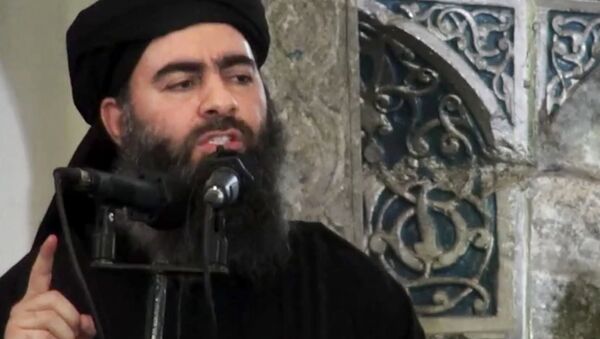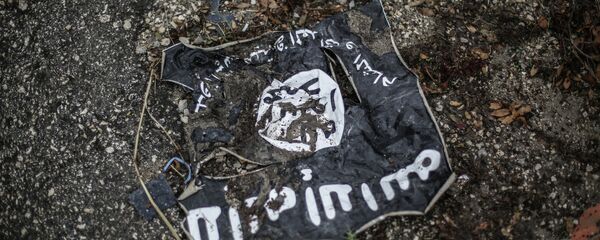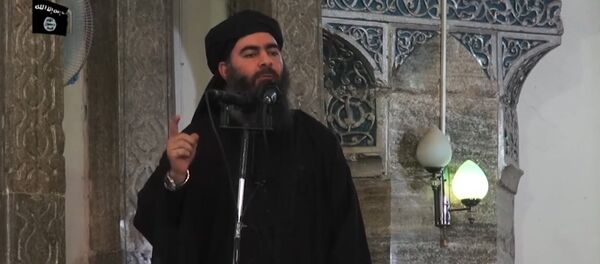In an interview with Sputnik Persian, Hassan Shemshadi, an Iranian military expert with close links to the Islamic Revolutionary Guards Corps (IRGC), said that after Abu Bakr al-Baghdadi proclaimed himself the Caliph of all Muslims and of the Islamic State (Daesh), Iraq’s Shiite and Sunni Muslims joined forces with Christians and Kurds to stand up to Daesh and liberate Mosul.
“Abu Bakr al-Baghdadi is more than just the face of Daesh. He is, first and foremost, a puppet in the hands of his masters. We know the intelligence agencies of the countries he was in touch with and from whom he was taking orders to establish the pseudo-caliphate of Daesh recruiting terrorists from across the world,” Shenshadi noted.
He added that with al-Baghdadi gone, Daesh will would not go anywhere.
“Daesh is a whole system, like a cancerous tumor, which keeps growing all the time. It is run by a single master or, rather, masters, who will not give up on their terrorist creation. As long as they support [Daesh], the scourge of terrorism will be growing and taking different forms and images,” he continued.
Hassan Shemshadi said that Daesh cells were now popping up in Libya, Afghanistan and in Africa.
“This means that there are people who still need it and use it to their benefit everywhere.”
He described the attempts by the US-led international coalition to combat the terrorist organization as a “show.” “The US and its allies played no role in the 10-month effort to liberate Mosul. It was the Iraqi army, the militia and the loyal regional allies who finally managed to recapture the besieged city.”
Shemshadi also said that the elimination of the “pseudo-Caliph” should not hamper the allies’ continued antiterrorist campaign in Syria and Iraq.
“Iran, Russia, Syria and Iraq need to redouble their concerted effort, which managed to change the course of the anti-Daesh war in the region,” Hassan Shemshadi emphasized.
On June 16, the Russian Defense Ministry said that Daesh leader Abu Bakr al-Baghdadi was likely killed as a result of a Russian Aerospace Forces strike on a militant command post in the southern suburb of the city of Raqqa in late May.
Then, on July 11, Alsumaria, an Iraqi news agency, citing a source in Iraq’s Nineveh province, reported about a brief message by Daesh, which confirmed their leader’s death and that they would now be led by a new “Caliph.”
Abu Bakr al-Baghdadi appeared in the media for the first time in 2014 when he declared the creation of a caliphate in the Middle East. Since then, the media has reported several times about the death of the Daesh leader, though the information has never been confirmed.




